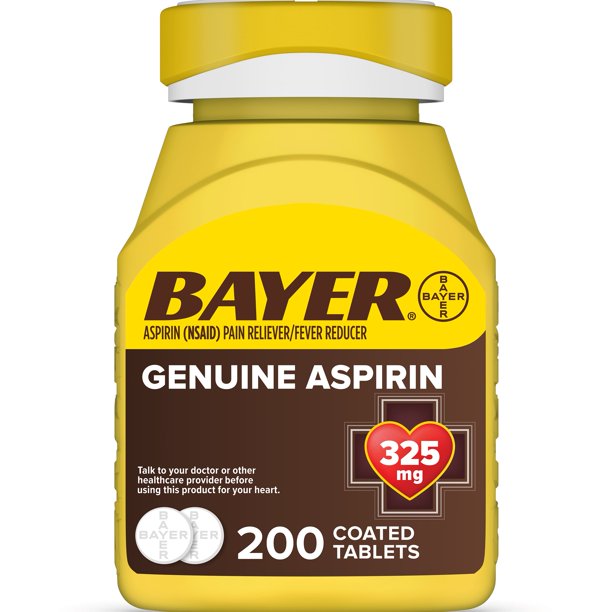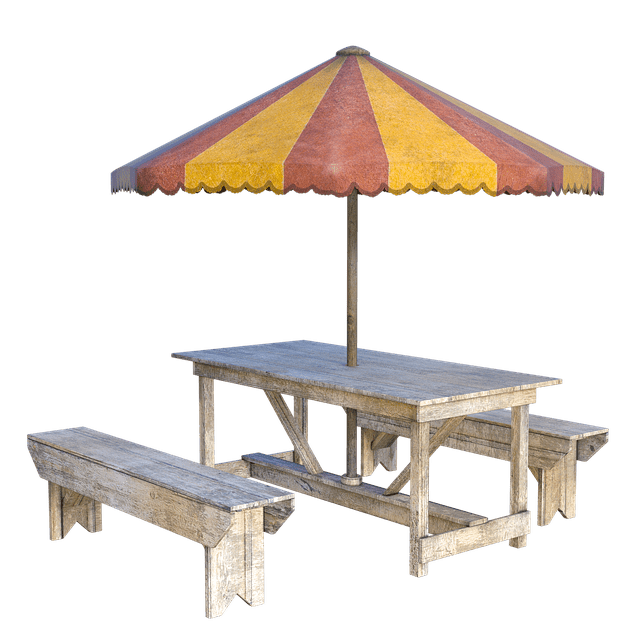Medications And The Sun Winter Or Summer can give you some ideas of how to change how you have fun in the sun. Change that can help you stay well, and control sun damage.

The sun is a powerful force that provides warmth and light to the Earth, but it can also be dangerous if we don’t take the proper precautions.
Sun exposure can cause skin damage, premature aging, and even skin cancer.
Many people think that we only need to worry about the sun during the summer months. Thia is just not true. I have had winter sunburns that blistered and peeled, just like the summertime.
The truth is that the sun can be harmful in any season.
In this blog post, we’ll explore how to be aware of the dangers of the sun all year round. It is important to know how medications, even just allergy medications that may increase sensitivity to sunlight.
Understanding Sun Damage
Before we dive into the details of how to protect yourself from the sun, it’s important to understand how the sun can damage your skin.
Ultraviolet (UV) radiation from the sun can penetrate your skin and cause a variety of issues: sunburn, premature aging, and skin cancer.
There are two types of UV radiation that can harm your skin: UVA and UVB.
UVA radiation is associated with premature aging and can penetrate deeper into the skin.
UVB radiation is responsible for sunburn and is more common in the summer months. It’s important to protect yourself from both types of UV radiation all year round.

Medications and Sun Sensitivity
Certain medications can make your skin more sensitive to the sun. When you become more sensitive to the sun, this increases your risk of sunburn and skin damage.
Some common medications that can cause sun sensitivity include antibiotics, anti-inflammatory drugs, and some medications used to treat acne.
If you’re taking any of these medications, it’s important to take extra precautions when spending time outdoors in the sun. This includes wearing protective clothing, such as long-sleeved shirts and wide-brimmed hats, and using a broad-spectrum sunscreen with an SPF of 30 or higher. Don’t forget your sunglasses.
Tips to Stay Safe in the Sun
Do you feel more comfortable that you understand more about the dangers of the sun and how medications can increase yout sun sensitivity? OK, let’s explore some tips for staying safe in the sun all year round:
- Wear Sun Blocking clothing: Whenever possible, wear long-sleeved shirts, pants, and wide-brimmed hats to protect your skin from the sun. This is especially important if you’re taking medications that may increase sun sensitivity. Remember those sunglasses.
- Use Sunscreen: Use a broad-spectrum sunscreen with an SPF of 30 or higher every day, even on cloudy days. Apply sunscreen to all exposed skin, including your face, ears, and neck. Reapply every two hours or more often if you’re swimming or sweating.
- Stay in the Shade: When possible, seek shade during peak sun hours, which are typically between 10 AM and 4 PM. This is especially important if you’re taking medications that may increase sun sensitivity.
- Stay Hydrated: Drink plenty of water to keep your skin hydrated and healthy. This is especially important if you’re spending time outdoors in the sun.
- Be Mindful of Reflective Surfaces: Sand, water, snow, and concrete can reflect the sun’s rays. This can increase your exposure to UV radiation. Be especially mindful of these surfaces when spending time outdoors.
I think about this when someone says that they forgot to protect their skin when out for a fun in the sun day. This is such a simple thing but does require some changes in your habits.
It is easier to keep your skin protected from the sun when you don’t have to keep adding sunscreen all day to your whole body!
The sun can be dangerous all year round, not just during the summer months.
Some medications when taken increase your reaction to anything. So, if you have a more immediate reaction to the sun, or if a skin care product suddenly seems to cause problems, think back to medications. Often this causes the reaction.
Medication List From FDA
The types of medicines that could cause you to have increased sensitivity to the sun include:
- Antibiotics (ciprofloxacin, doxycycline, levofloxacin, ofloxacin, tetracycline, trimethoprim)
- Antifungals (flucytosine, griseofulvin, voricanozole)
- Antihistamines (cetirizine, diphenhydramine, loratadine, promethazine, cyproheptadine)
- Cholesterol lowering drugs (simvastatin, atorvastatin, lovastatin, pravastatin)
- Diuretics (thiazide diuretics: hydrochlorothiazide, chlorthalidone, chlorothiazide.; other diuretics: furosemide and triamterene)
- Non-steroidal anti-inflammatory drugs (ibuprofen, naproxen, celecoxib, piroxicam, ketoprofen)
- Oral contraceptives and estrogens
- Phenothiazines (tranquilizers, anti-emetics: examples, chlorpromazine, fluphenazine, promethazine, thioridazine, prochloroperazine)
- Psoralens (methoxsalen, trioxsalen)
- Retinoids (acitretin, isotretinoin)
- Sulfonamides (acetazolamide, sulfadiazine, sulfamethizole, sulfamethoxazole, sulfapyridine, sulfasalazine, sulfasoxazole)
- Sulfonylureas for type 2 diabetes (glipizide, glyburide)
- Alpha-hydroxy acids in cosmetics
Suggestions For You If Your Medication Is On The List
This is just an overall list of what people react to. Not all people who take or use the medicines mentioned will have a reaction.
Also, if you experience a reaction on one occasion, it does not mean that you are guaranteed to have a reaction if you use the product again.
By understanding the dangers of the sun and taking precautions, you can protect your skin. This in turn will reduce your risk of skin damage and skin cancer.
If you’re taking medications that may increase sun sensitivity, it’s especially important to take extra precautions when spending time outdoors.
By following these tips for staying safe in the sun, you can enjoy all that the great outdoors has to offer while keeping your skin healthy and protected.
(Photosensitivity is a chemically induced change in your skin. This change in your skin (photosensitivity) makes you more sensitive to sunlight. This increased sensitivity causes your skin to have a sunburn type of symptoms.
Often even a few minutes in the sun can cause a rash, or other unwanted side effects. This reaction can also be triggered by products like a skincream applied to the skin.
This is just to warn you about what to consider should you have a really bad reaction to the sun and feel that you had an unusually strong reaction, to either take extra precaution when planning a day out in the sun.
Remember that your may react more in the winter than the summer. Or maybe the summer causes a stronger reaction for you.
Help You Make Use Of This Information
This information is shared to help you give some thought to how to better protect your skin. Often we are blindsided with skin reactions. With why you got a sunburn today, when your usually don’t.
A change of medication may explain what is happening with your family and why they have occasional flare-ups on their skin.
We seem to have more concern for the sun in the summer, this is probably because it is warmer and we associate heat and sun.
This leaves our skin vernable to winter abuse. While the winter sun may not act as quickly as a hot summer sun, it will still affect us if we are don’t pay attention. Remember all the reflecting rays as well.
First of all, are you taking any of the medications described? Remember, over-the-counter meds are included as well. Those we often forget we take! .
If you are a parent, you should think about any medications your family take, and who might be at risk for a sun related problem. In case you have forgotten, if your child has blue eyes, red or blonde hair or very fair skin, they are at a higher risk already. Add any medication, and the risk is higher.
So as living in a cave and never getting out is not an reasonable option for you or your family, what should we be doing?

Easy Adjustments For You To Make
If you have realized that you should havesome concerns about developing a reaction, try to reduce your risk. This can be done by making a few common sense changes to your lifestyle:
- When you are outside, spending some time in the shade can give your body a chance to cool down. “Hot spots” like your head, face shoulders or back can cool a bit. This is especially true between 10 AM and 4 PM in my part of the world for summertime.
- In the cooler months of the year, you can do better job of staying safe by avoiding the sun from 11AM until 3 PM. This may seem to be over reacting, but if you find yourself in the sun during these hours, use extra sunscreen, wear a sun hat, and your sunglasses. Do what you can to protect your skin and eyes.
- Just keep in mind that the sun’s rays may be stronger when reflected off water, sand and snow. This is especially true of winter rays as they are trickers and you don’t notice them because of the absence of heat.
- Wear long-sleeved, tighyly woven but loose fitting shirts and pants. Yoursunglasses, and wider-brimmed hats to limit you sun exposure.
- Use a broad spectrum sunscreen regularly and as directed. Broad-spectrum sunscreens provide protection against UVA and UVB radiation. An SPF 15 is the minimum number needed to provide measurable protection; however, a sunscreen with an SPF value of 30 or higher is recommended.
Other Thoughts About Medications and Sun Exposure
- Rarely, some sunscreen ingredients can cause photosensitivity themselves. This is unfortunately, just one more thing to be aware of.
- In this crazy world we live in where everyone seems to want a sun tan, you must remain alert. Know when you have had enough sun. Winter time sun can fool you.
- If there are questions about your medications and the possibility of a photo-sensitivity occurance, contact your Doctor
Get out of the sun, and limit sun exposures until all is well.
Taking a few precautions can help limit your risk of photosensitivity and keep the sun shining on your fun, summer or winter.
Sun Blocking Clothing Can Be An Easy Answer
As you are considering easy ways to manage you sensitive skin, the world of sun blocking clothing should help.
There are so many improvements in the styles and fabric content that will help you stay protected from the sun. With the added dangers of some sunscreen products causing more problems, having a hat with a 3 inch brim, your sunglasses and a longsleeve loose fitting shirt give you the basics.
Young kids need to be out of the direct sun until they are 12 months old. Dress them in a broad brimmed hat with sunglasses held on with a safety strap. Getting them into longsleeved coverups to protect them from the sun. This is so much easier that trying to keep sunscreen reapplied several times during a days outing.
When shopping for your sun blocking clothing, read labels and hang tags. Know what you are buying and how to launder it for maximum life and protection for your kids.

Sami’s Take on Medications and the Sun Winter and Summer
The simple things you can do like play tennis at 8 AM instead of 11. Or take the earlier tee times at the golf course. Choose an earlier play group time for your kids. If there are issues with this, just explain your concerns and see if maybe the Moms had considered the risks of sun exposure.
These are very simple things you can do to improve your game of skin protection from the sun. These can help you avoid skin cancer. So many of us have just ignored the results that science is finding. The information is there. It is up to you and me to do something with it.
Sun protection combined with the awareness of sun exposure on our skin when we are taking medications, even Tyloneol can help us be healthier and keep ourselves away from skin cancer.
Thank you,
Sami